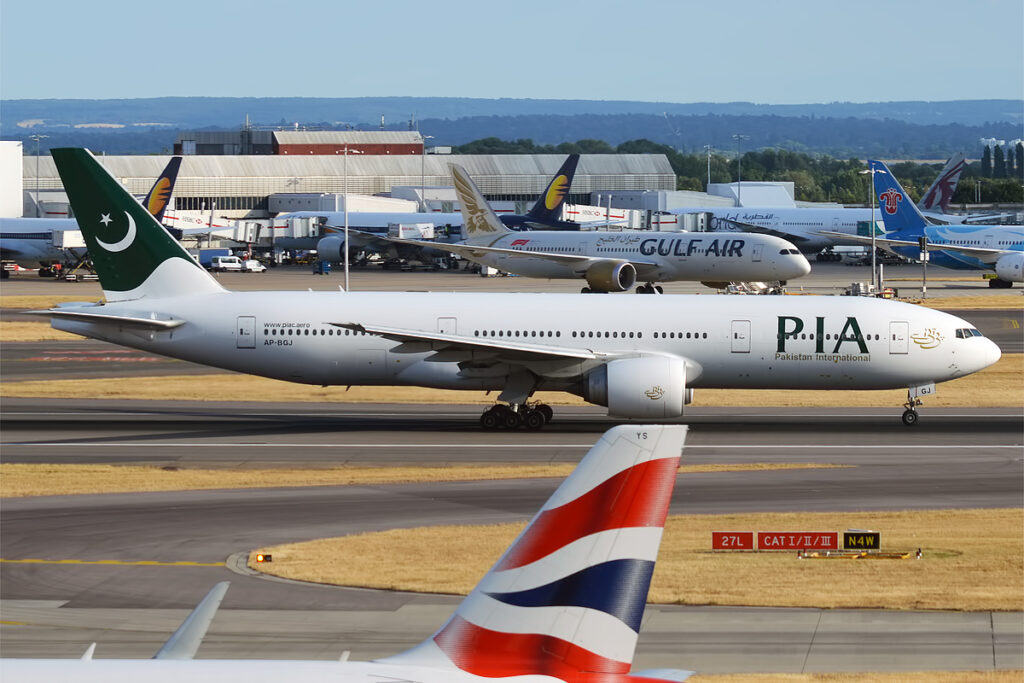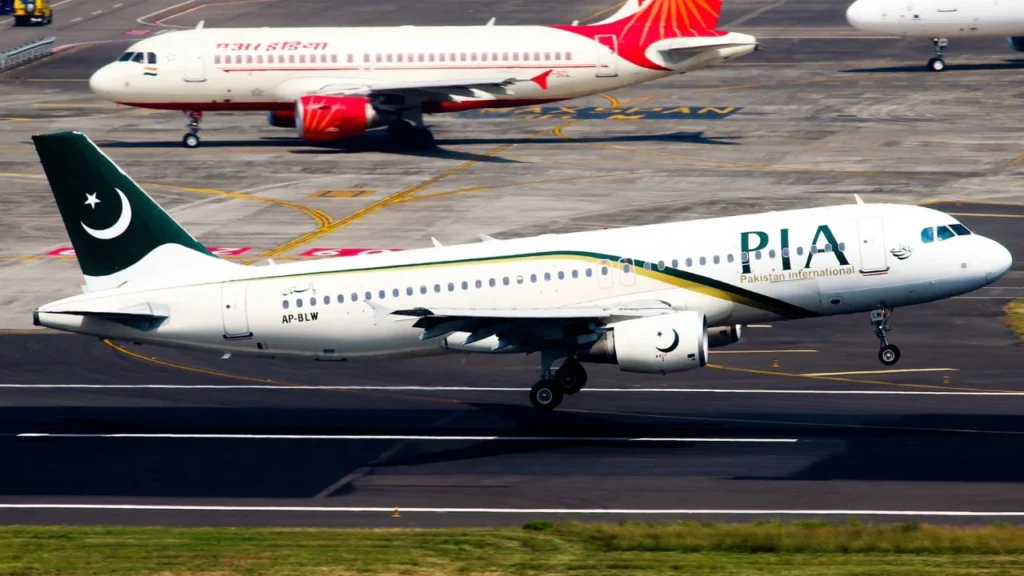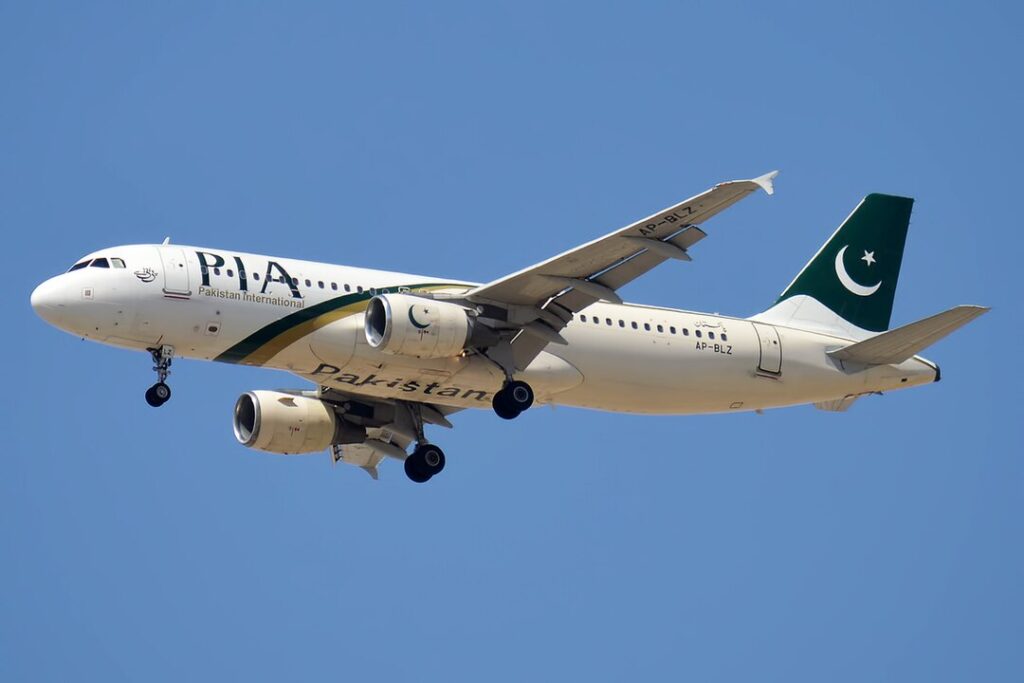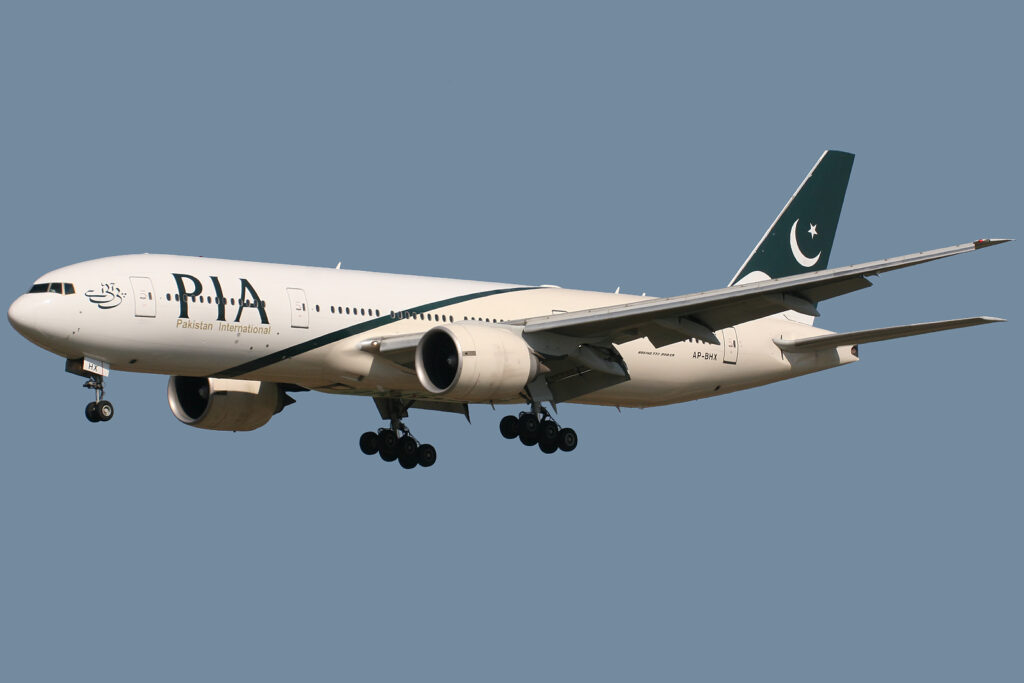KARACHI- In a significant breakthrough for Pakistan International Airlines (PIA), Aviation Minister Khawaja Asif announced on Friday the comprehensive lifting of the European flight ban by the European Commission and European Aviation Safety Agency (EASA).
The suspension, which originated in June 2020, followed a devastating plane crash in Karachi that claimed nearly 100 lives and was compounded by controversial allegations regarding pilot licensing during the PTI government’s tenure.

Pakistan Airlines Unbanned for Europe Flights
The restoration of European routes marks a critical turning point for the national carrier, which suffered substantial financial losses estimated at approximately Rs40 billion during the international prohibition. The ban’s reversal comes after extensive regulatory scrutiny and systematic improvements in aviation safety standards.
Minister of State for Finance and Revenue Ali Pervaiz Malik previously signaled optimism, informing the National Assembly in June about the potential flight restoration after Pakistan’s delisting from the European Commission’s air safety concern list on May 14.
Asif had earlier projected the resumption of UK flights by mid-May, basing his projections on consultations with relevant aviation authorities.

Minister Remarks
Aviation Minister Khawaja Asif announced a landmark achievement for Pakistan’s aviation sector, revealing the European Commission and European Aviation Safety Agency (EASA) have lifted the suspension on Pakistan International Airlines (PIA) flights to Europe.
The minister made this declaration through a post on X, highlighting a significant breakthrough in international air travel regulations.
Alongside PIA’s reinstatement, Asif disclosed that Third Country Operator authorization was granted to Airblue, further expanding Pakistan’s aviation opportunities. The minister attributed this success to the aviation ministry’s comprehensive strategy of enhancing the Pakistan Civil Aviation Authority’s (PCAA) operational capabilities and safety standards.
The minister detailed the government’s systematic approach to aviation sector reforms, emphasizing multiple critical interventions. These included the enactment of the PCAA Act, implementing a clear segregation between regulatory bodies and service providers, appointing professional leadership, and investing in extensive training programs to elevate institutional capacity.
Asif expressed gratitude to the European Commission and EASA for conducting a transparent evaluation process, underscoring Pakistan’s commitment to aligning with International Civil Aviation Organisation (ICAO) safety standards.

Good for Government Owned Carrier
Asif declared the lifting of the European ban on Pakistani carriers a significant success during an interview with Geo News. He emphasized the extensive three-year effort by civil aviation bodies to meet stringent European standards, highlighting multiple comprehensive audits that ultimately resulted in regulatory compliance.
The minister expressed optimism about the immediate benefits of the ban’s removal, specifically anticipating potential restoration of UK operations. Asif revealed that additional airlines, including FlyJinnah, are currently undergoing similar audit processes to expand international operational capabilities.
Regarding the timeline for resuming European flights, Asif acknowledged the imminent but not immediately precise restart. He candidly addressed PIA’s operational challenges, particularly the airline’s critical need for fleet expansion before recommencing European routes.
PIA’s privatization process stands to significantly benefit from this regulatory breakthrough. Asif explained that regaining European routes represents a major value proposition for potential investors, addressing the initial muted response to the first privatization round.
Prime Minister Shehbaz Sharif commended the achievement, describing it as a “proud moment for the nation” and acknowledging the dedicated efforts of Asif, PIA management, and aviation officials. Asif reciprocated by expressing gratitude for the Prime Minister’s close monitoring and supportive involvement throughout the challenging negotiation process.
Asif characterized the ban’s lifting as a challenging diplomatic and operational achievement, emphasizing the collaborative efforts of civil aviation bodies. He remains hopeful about the potential future lifting of additional international restrictions, expressing confidence in PIA’s potential for revival regardless of its eventual ownership structure.

Responding to Safety Concerns
The Pakistan Civil Aviation Authority (PCAA) responded to initial safety concerns by presenting a comprehensive corrective action plan on May 6, detailing specific measures addressing identified deficiencies.
The EU Air Safety Committee mandated continuous monitoring of Pakistan’s aviation safety landscape, establishing a structured approach for ongoing evaluation. The committee prescribed regular technical meetings in Brussels preceding each EU Air Safety Committee session and required consistent progress reporting from the PCAA.
The committee reserved the option of conducting additional hearings, signaling a cautious but collaborative approach to reinstating Pakistan’s aviation credentials.
Stay tuned with us. Further, follow us on social media for the latest updates.
Join us on Telegram Group for the Latest Aviation Updates. Subsequently, follow us on Google News

